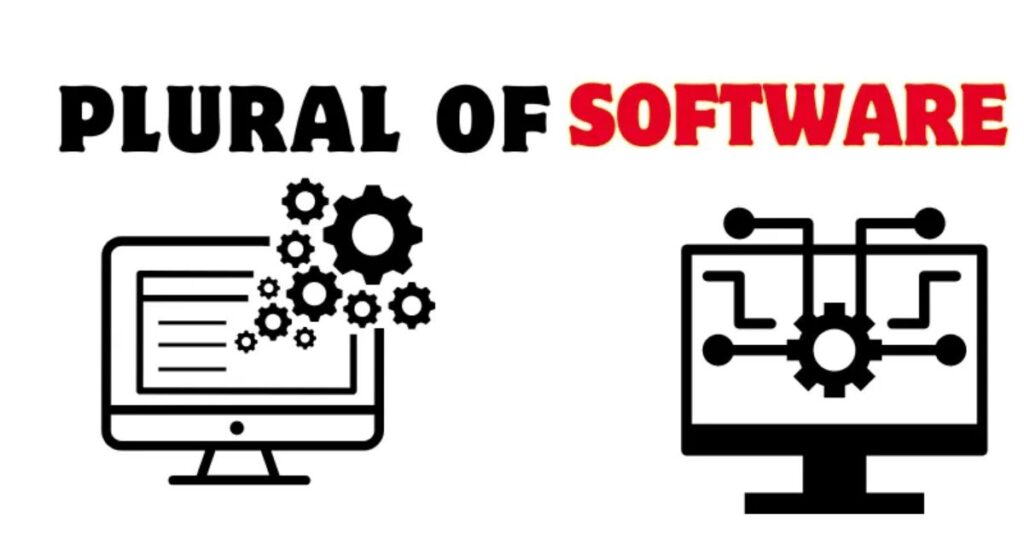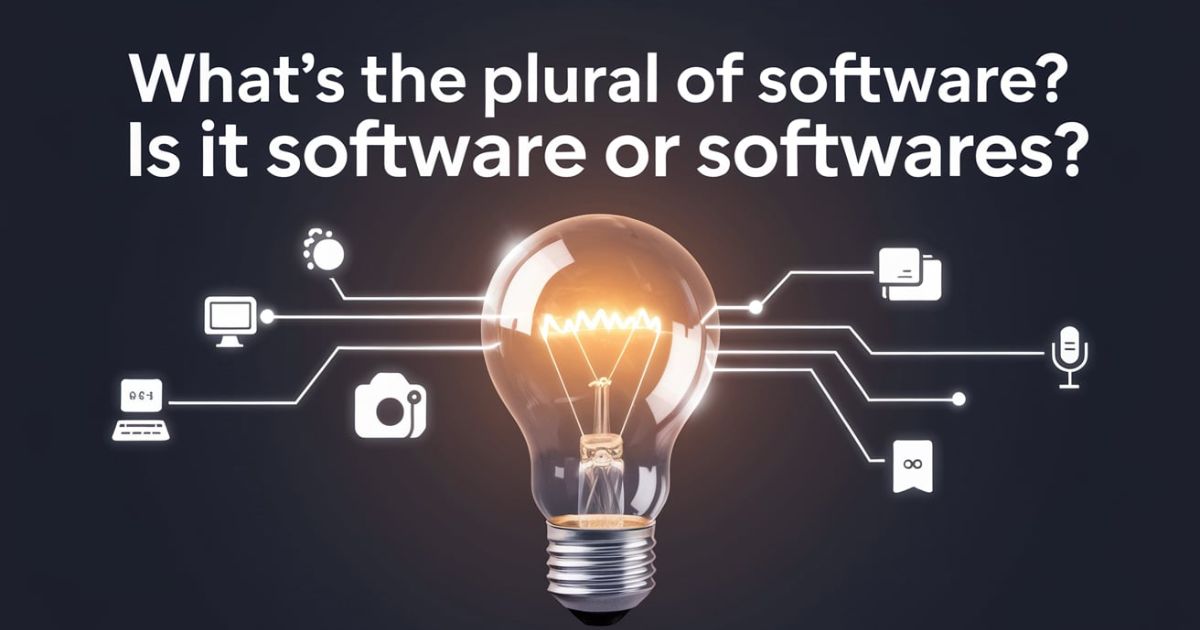Many people find themselves confused about the correct way to refer to multiple computer programs. Is it “software” or “softwares”? While it may seem like a small detail, using the correct word is essential, especially when communicating in technical fields.
Let’s dive in and explore what makes “software” a unique word, how it should be used, and why “softwares” is not the correct plural form.
What Does the Word “Software” Mean?
Before understanding the plural of “software,” it’s important to first know what software actually means. In simple terms, software is a set of instructions or programs that tell a computer how to perform tasks. Think of it this way: hardware is the physical part of a computer, like the screen, keyboard, and processor. Software is what gives the computer the ability to perform tasks, like opening a web browser or playing a game. Without software, the hardware is useless.
Here’s an analogy: If you think of a kitchen, the hardware is like the pots, pans, and oven, while the software is the recipe that tells you how to make the food. Without the recipe, you wouldn’t know what to do with the ingredients. In the same way, without software, the hardware wouldn’t know what to do.
Some common examples of software include:
- Word processing programs like Microsoft Word
- Web browsers like Google Chrome
- Operating systems like Windows or macOS
READ MORE: What’s the Plural of Syllabus? Syllabuses or Syllabi?
Plural of “Software”: Software or Softwares
Now, let’s get to the big question: What’s the plural of software? Unlike most nouns, which you can make plural by adding an “s” at the end (like book becomes books), software doesn’t follow this rule. That’s because it’s a mass noun or uncountable noun. A mass noun refers to something that can’t be counted individually, like water, furniture, or information. You wouldn’t say “waters” or “furnitures,” right? It’s the same with software.
Software is already plural in a way, even though it sounds singular. Whether you are talking about one program or many, you still just say software. For example:
- Correct: I installed some new software on my computer.
- Incorrect: I installed some new softwares on my computer.
If you need to emphasize that you are talking about more than one program, you can use phrases like:
- Multiple software programs
- Different types of software
- Several software applications
Some More Nouns like “Software” and Their Plurals
There are other nouns that behave just like software. Here’s a helpful table showing a few common ones and their plural forms:
| Singular | Plural |
| Software | Software |
| Hardware | Hardware |
| Firmware | Firmware |
| Malware | Malware |
| Middleware | Middleware |
As you can see, these mass nouns don’t change when you’re talking about more than one. Whether you have one piece of hardware or ten, the word remains the same.
Origins of the Word “Software”
The term software might seem modern, but it has an interesting history. While the concept we know today started in the 1950s, the word “software” itself was first used by mathematician John W. Tukey in 1958. Tukey used it in a journal article to describe the programs that worked with computer hardware. Before this, people only used the word “hardware” to talk about computers, because most people thought of them as just machines.
Over time, software became the standard term to describe the non-physical parts of computers—like programs and instructions. It was a perfect counterpart to hardware, which describes the physical parts. Today, we use the word software to talk about everything from apps on our phones to operating systems on our laptops.
Can Someone Use Softwares as a Plural of “Software”?

Simply put: No, you cannot use “softwares” as the plural of software. It’s incorrect because software is a mass noun. Here’s why:
- Software is treated as a whole, like water or furniture. You can’t break it into countable pieces.
- Adding an “s” to make “softwares” is like saying “waters” or “furnitures,” which sounds odd and is grammatically wrong.
To talk about multiple programs or pieces of software, try using descriptive phrases instead. For example:
- Correct: We need to install new software for the project.
- Incorrect: We need to install new softwares for the project.
Examples in Context as Singular and Plural
Now that we’ve covered the theory, let’s see how software is used in both singular and plural contexts.
Singular Usage (“Software”)
Here are some examples of how to use software when you’re talking about a single program or the concept as a whole:
- This software has been a great help for managing my business.
- She installed new software to help her with graphic design.
- Without software, the computer is just a piece of metal and wires.
- Software development requires a lot of coding skills.
- He’s an expert in creating user-friendly software.
In all these cases, you’re talking about software as a singular entity, whether it’s a single program or the concept of software in general.
Plural Usage (Alternatives for “Softwares”)
When you need to refer to more than one program, avoid using “softwares.” Instead, use one of these alternatives:
- Different software programs are used to design and code video games.
- We need to update all the software solutions in our office.
- Multiple software applications are available to solve that problem.
- The company is releasing several new software tools next year.
- It’s important to keep your software systems up to date.
Notice how these phrases give you a way to talk about multiple programs without using “softwares,” which would be incorrect.
ALSO READ: Totalling or Totaling: Which Spelling to Use?
The Wrap-Up: No Need for “Softwares”
To wrap things up, let’s revisit the key points. Software is a unique word that doesn’t follow the regular plural rules. Unlike most nouns, which simply take an “s” at the end to form their plural, software remains the same whether you’re talking about one program or many. It’s a mass noun, like water or furniture, and cannot be counted individually.
So, next time you’re wondering how to talk about a bunch of programs, remember: there’s no need to say “softwares.” Instead, stick with software and use phrases like:

Osbert is a skilled linguist and educator specializing in English grammar and vocabulary. With years of experience, he has dedicated his career to helping learners enhance their language skills. Osbert is passionate about simplifying complex grammar concepts and is the founder of EnglishInfoz.com, a platform focused on English language education.
